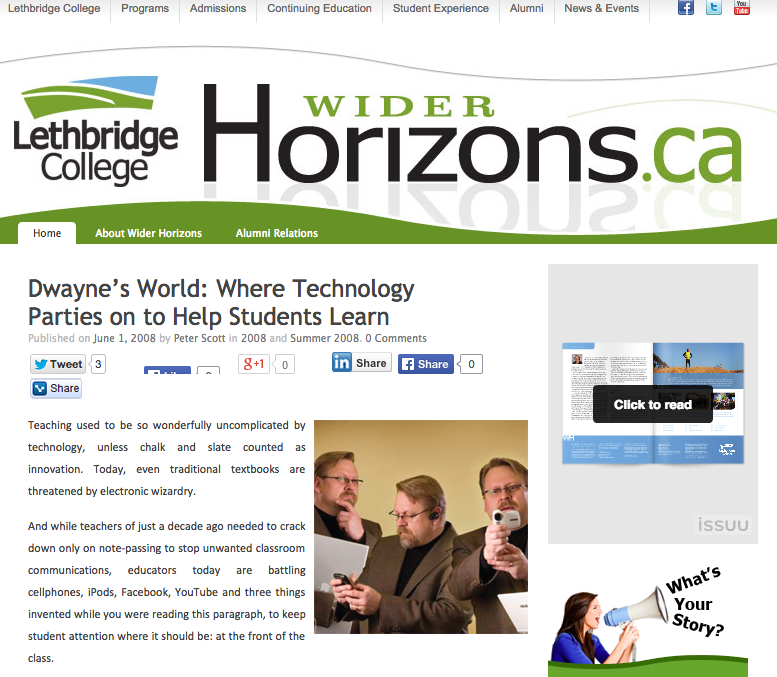
ECAR National Study of Undergraduate Students and Information Technology, 2011 Report | EDUCAUSE via kwout
Some of the key findings from this years report include:
- Students are drawn to hot technologies, but they rely on more traditional devices
- Students report technology delivers major academic benefits
- Students report uneven perceptions of institutions’ and instructors’ use of technology
- Facebook generation students juggle personal and academic interactions
- Students prefer, and say they learn more in, classes with online components
Regardless of whether or not one believes that technology enhances learning our students believe that it does and if we (the academy) aren’t making an effort to at least utilize the most fundamental of technologies like electronic submission of assignments or the posting course content and grades on a course management system then these student have little respect for what we do. If they don’t respect us how can we expect them to learn from us.
The data is very sobering:
- About 1 in 3 students (31%) think the instructor often requires the help of others to get technology up and running successfully.
- More than 1 in 2 students (51%) think they know more about technology than their professors.
Fortunately, the report also offers a detailed list of recommendations that we can follow to start utilizing technology to enhance learning.

































